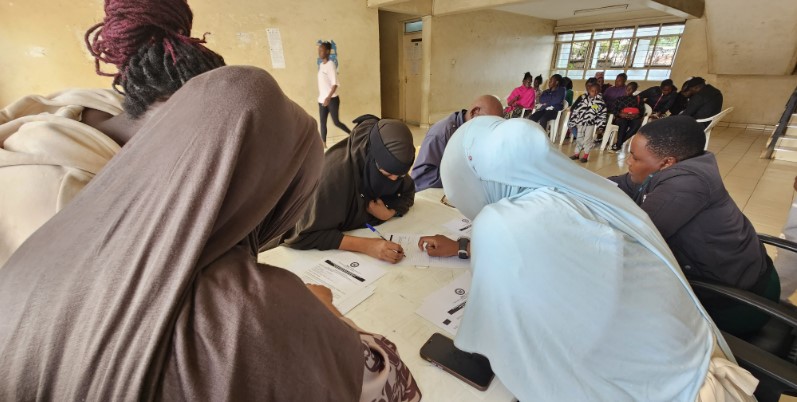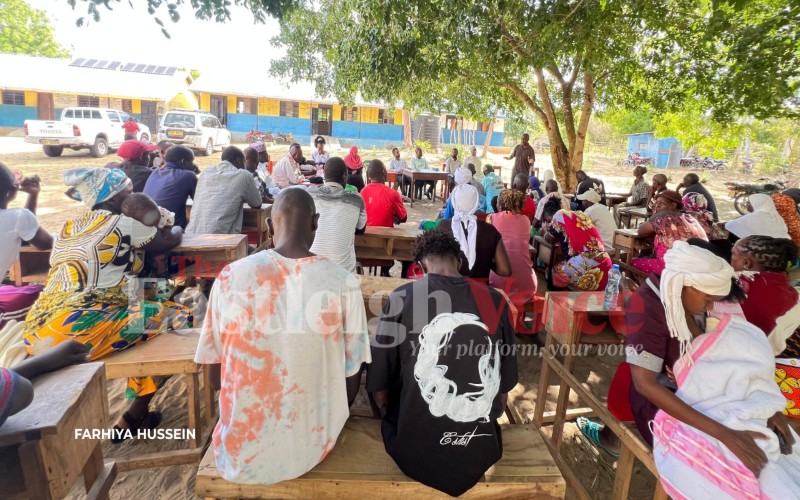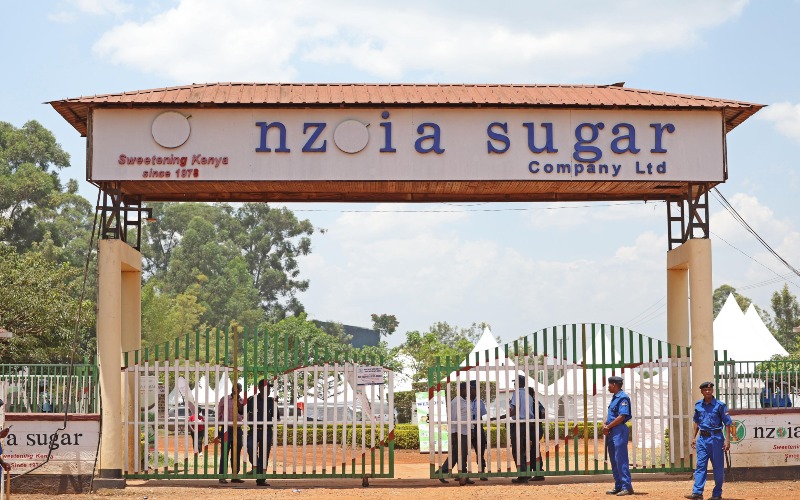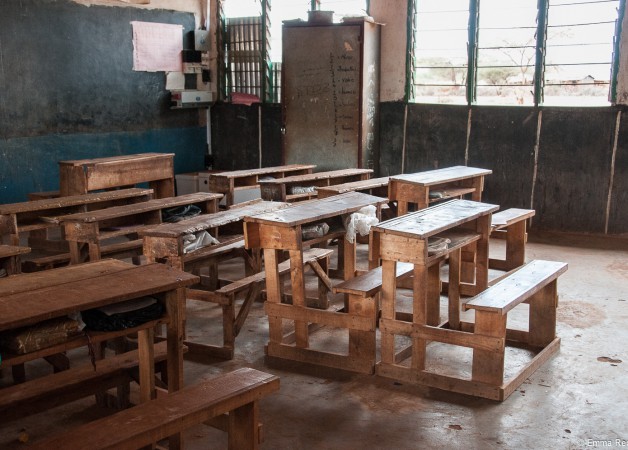Report: Kamukunji, Mathare among constituencies that backed entrenchment of NG-CDF into the law

The Constitution of Kenya (Amendment) Bill, 2025, seeks to formally entrench the NG-CDF, NGAAF, and Senate Oversight Fund in the Constitution by amending relevant provisions.
The majority of Kenyans have endorsed the Constitution of Kenya (Amendment) Bill, 2025, with over 220,000 of the 224,482 participants supporting the proposal to entrench the NG-CDF, NGAAF, and Senate Oversight Fund in the Constitution, representing a 98.5 per cent approval rate.
According to a report by the Justice and Legal Affairs Committee, the Bill received 100 per cent support in several constituencies, including Kamukunji, Mathare, Wajir South, and Turkana South, where citizens stressed the importance of safeguarding bursaries and advancing inclusive development.
More To Read
- Karua accuses section of MPs of manipulating public participation in lawmaking process
- Senate denies plans to extend presidential term limit, create office of Prime Minister
- Auditor General flags Sh1.3 billion in unsupported CDF spending
- Clash looms as Senate pushes for expanded powers in new Bill
- Treasury disburses Sh68 billion to NG-CDF board, clearing all outstanding arrears
- NG-CDF slashed by Sh12 billion in supplementary budget, raising concerns over projects, bursaries
The report, tabled in Parliament, notes that public participation was conducted across all 290 constituencies. During the exercise, citizens were sensitised on the contents of the Bill and invited to submit both oral and written views. Out of the 224,482 who participated, 221,133 endorsed the Bill.
“There was huge public support for the Bill during public hearings on the Bill,” reads the committee report.
In addition to the public hearings, the National Assembly received 306 hand-delivered submissions—305 of which supported the entrenchment of the three funds, with only one submission opposing the proposal.
Throughout the public participation process, officers from the Office of the Clerk facilitated the exercise by assisting participants in completing the public views template forms and collecting them once filled.
The Bill, which has already been passed by the National Assembly, is now awaiting consideration in the Senate.
The Justice and Legal Affairs Committee reported full support in 49 constituencies and a 99 per cent approval rate in 104 others. Some of the constituencies that recorded 100 per cent backing include Ainamoi, Balambala, Banisa, Bonchari, Butere, Cherengany, Dadaab, Eldas, Emurua Dikir, Endebes, Fafi, Garsen, Gatanga, Igembe North, Ijara, Kandara, Khwisero, Kigumo, Kilome, Kiminini, Kipipiri, Kitui Rural, Kwanza, Lafey, Lari, Lunga Lunga, Malindi, Marakwet East, Marakwet West, Mbooni, Msambweni, Mt Elgon, Mwingi Central, Mwingi West, Naivasha, Narok North, Narok South, Nyando, Rongo, Runyenjes, Samburu East, Sigor, Subukia, Teso North, Tiaty, Turkana East, and Wajir South.
Supporters of the Bill emphasised that the three funds play a crucial role in meeting grassroots development needs.
“The NG-CDF would continue facilitating access to education by providing bursaries to needy students, the NGAAF would promote access to financial facilities for special interest groups, and the SOF would promote accountability in county governments,” reads the report.
Decentralising resources
The committee further noted, “The NG-CDF and NGAAF are means of further decentralising resources to the local level. The funds are intended for specific purposes, and that the sources of funds consist of money appropriated from the national government’s share of revenue as divided by the annual Division of Revenue Act enacted pursuant to Article 218 of the Constitution.”
The Constitution of Kenya (Amendment) Bill, 2025, seeks to formally entrench the NG-CDF, NGAAF, and Senate Oversight Fund in the Constitution by amending relevant provisions.
The Bill has been introduced under Article 256(1) of the Constitution, which allows for amendments through a parliamentary initiative, and may originate from either House of Parliament.
The Justice and Legal Affairs Committee emphasised that the public participation process fully complied with constitutional requirements—specifically Article 10(2), which recognises public participation as a national value, and Article 118, which obligates Parliament to involve the public in legislative and committee processes.
The Constituencies Development Fund (CDF) has previously faced legal challenges. In 2013, the original CDF Act was declared unconstitutional by the Supreme Court for contravening principles related to the division of revenue, public finance, and separation of powers. In response, lawmakers enacted the National Government Constituencies Development Fund (NG-CDF) to align with constitutional requirements.
According to the committee report, the fund has played a significant role in grassroots development. Since its inception, it has supported the construction of 3,087 schools and awarded bursaries to 1.2 million needy students. The NG-CDF allocates approximately Sh15 billion annually to bursaries.
In partnership with the Ministry of Education, the fund has also enabled the establishment of 130 technical training institutes (TTIs) and 61 Kenya Medical Training Colleges (KMTCs), resulting in the enrolment of 13,511 students.
The CDF was first introduced in 2003 through a private member’s bill sponsored by then Ol Kalou MP, Muriuki Karue.
The initiative aimed to decentralise development planning and financing, replacing the District Focus for Rural Development (DFRD) model, which had relied heavily on ministries, state departments, local authorities, and NGOs.
Top Stories Today












































